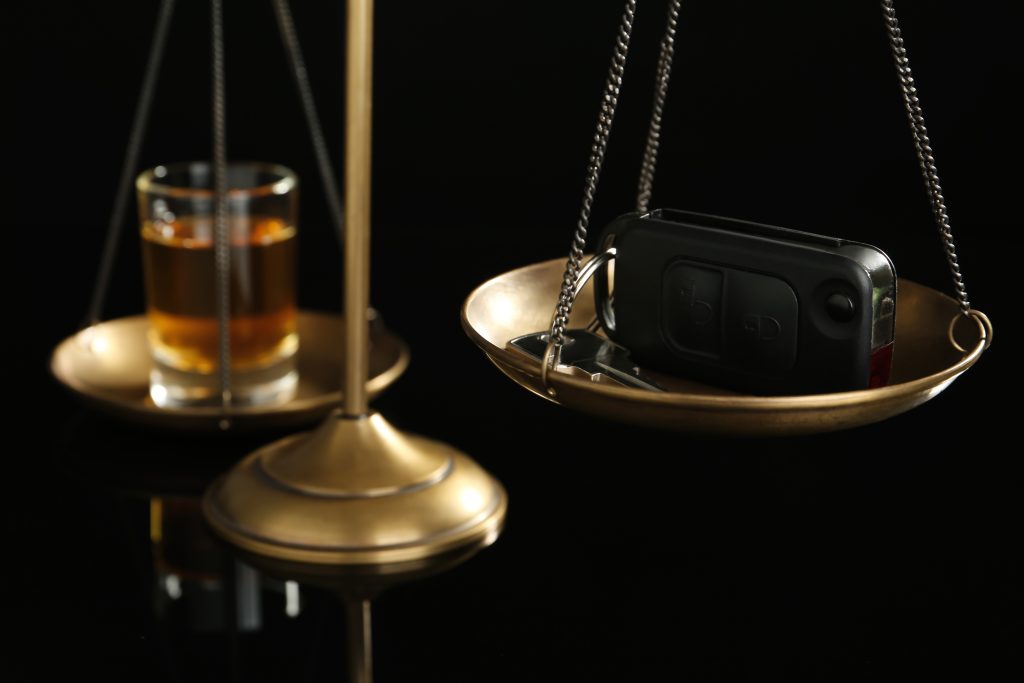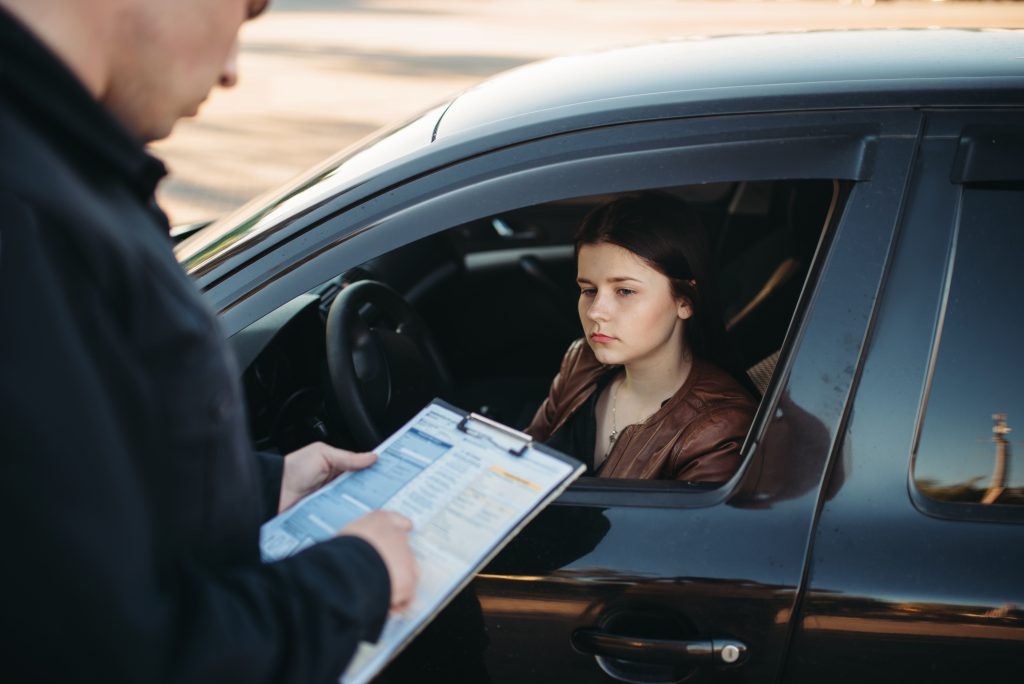At Driver Defense Team, we represent many clients that are facing a driving under the influence charge when they have one or more prior DUIs in their background. These clients are usually very concerned about what will happen if they are convicted of multiple DUIs. Their concerns are centered around the loss of their driving privileges, being sentenced to jail or prison, and how a conviction for one or more DUIs will affect their ability to find jobs, housing, remain in the United States if they are not a US Citizen, or how it may impact their professional license.
Every time someone gets charged with a DUI, there are two separate issues: the consequences to their driving privileges and the criminal charge itself. Let’s start with the easier of the two, the criminal charge itself.
Driving Under the Influence – The Crime
The First DUI Charge
Typically, the first time you are charged with a DUI, it is a Class A Misdemeanor. The minimum sentence if you plead guilty or are found guilty after a trial, is court supervision. Court supervision is not a conviction in the State of Illinois. This is helpful to first time DUI offenders because if you’re later asked on an application for employment, housing, licensing, etc., if you’ve been convicted of a DUI or a misdemeanor, you can say no. It is also helpful that supervision is not a conviction because a DUI conviction revokes your driving privileges.
If you are not a US Citizen, the Department of Homeland Security – US Citizen and Immigration Services does not view supervision as not being a conviction, as this is a disposition unique to the State of Illinois. Therefore, informing your attorney of your citizenship status is very important as this factor needs to be considered when deciding if you want to go to trial or negotiate for a reduced charge.
Court supervision can range from 12-24 months. While a client is on court supervision, they cannot get arrested again. If a client is arrested while on supervision, the prosecutor will file a Petition for Violation of Supervision. If the client pleads guilty or is found guilty after a hearing, their supervision is revoked and they receive a conviction, instead.
Additionally, the client must comply with all of the other requirements of their sentence. Those requirements can include: attending a victim impact panel, completing drug and alcohol counseling, paying fines, fees and costs, community service, abstinence from alcohol (monitored by a SCRAM bracelet or other alcohol tracking system), and abstinence from non-prescription drugs (sometimes monitored by random urine tests).
If the client’s blood alcohol concentration was above 0.16 at the time of the arrest, the client is facing additional penalties of a mandatory minimum $500 fine and 100 hours of community service. Some counties require clients on supervision to check in with a social worker or court sentence monitoring employee on a monthly basis. Some counties prohibit the client from leaving the State of Illinois while on supervision, without permission from their reporting agency or the court. The client is given a termination date for their sentence and they have to return to court on said date to prove they’ve completed all the conditions of their sentence and that they have not been arrested during the time period of their supervision. If they are successful, their supervision is terminated satisfactorily and they receive the benefit of not having a conviction. Even though supervision is not a conviction, the DUI does remain on your criminal background and your driving abstract forever and it can not be expunged. The reasoning behind that is because every time you get another DUI, the consequences will keep getting worse and worse.
There are instances where a first time DUI is a felony, instead of a Class A Misdemeanor. In this case your driving privileges were suspended or revoked at the time of the DUI arrest. Below are some circumstances that can turn a Class A Misdemeanor DUI into a felony DUI.
- you never had a drivers license or had an expired drivers license
- the automobile was not insured
- you were driving a school bus with passengers under the age of 18
- driving in a school zone when children are present and being involved in an accident that resulted in bodily harm to another
- you were involved in an accident that caused bodily harm to a passenger under the age of 16
- you left the scene of an accident involving death or personal injury
- if another individual was seriously hurt or killed as a result of you driving under the influence of alcohol or drugs.
The consequences for some felony DUIs will be discussed later in this article.
The Second DUI Charge
The second time someone pleads guilty or is found guilty of a DUI, it is also a Class A Misdemeanor, but the client is no longer eligible for court supervision. Therefore, the minimum sentence on a 2nd DUI is a conviction. The minimum sentence is called conditional discharge which typically lasts 18-24 months. Just like supervision, you cannot get arrested again while you’re on conditional discharge. You must also complete the other requirements of your sentence which are: alcohol and drug counseling, attending a victim impact panel, paying fines, fees, and costs.
However, if someone is convicted of a 2nd DUI, they are facing additional penalties of either a minimum of 5 days in the county jail served at 100% of the time or 240 hours of community service. If someone is convicted of a 2nd DUI and their blood alcohol concentration was above 0.16 at the time of their arrest, they’re facing an additional 2 days in the county jail and a mandatory minimum fine of $1,250.00. The client is given a termination date and must return to court on that date to prove that they’ve completed all of the conditions of their sentence and have not been arrested again while on conditional discharge.
The Third DUI Charge
The third time you plead guilty or are found guilty of a DUI, you are facing a felony. If the DUI is a felony because you have two prior DUIs in your background, it is a Class 4 Felony. The sentence can range from probation to 1-3 years in the Illinois Department of Corrections (“IDOC”), or prison.
If you are sentenced to prison time on a Class 4 Aggravated DUI, you are eligible for day for day good time credit. An example of day for day good time credit is if you are sentenced to 1 year in IDOC, you can be released in 6 months as long as you are “good” or well-behaved during your time in prison. This means that you cannot be charged with any new crimes while in prison and you must follow the rules.
If you are lucky enough to receive probation and not prison time, you will be assigned a probation officer. You will have to check in with that probation officer usually on a monthly basis. You must be employed or in school while on probation, complete drug and alcohol counseling, attend a victim impact panel, pay fines, fees, and costs. If you plead guilty or are found guilty of a Class 4 Aggravated DUI, then you are convicted felon. Therefore, you lose all rights to possessing and carrying firearms for the rest of your life.
If the third time that you get a DUI, your blood alcohol concentration at the time of the arrest was a 0.16 or greater, you will be charged with a Class 2 Felony Aggravated DUI. It is a probationable offense. However, you are subject to a mandatory minimum of 90 days in the county jail and a $2,500.00 fine. If you are not eligible for probation, you would be facing 3-7 years in the Illinois Department of Corrections, served at 85% good time credit. This means that if the inmate complies with institutional regulations and behaves, they will receive 4.5 days of credit per month. Another way to say it is if the inmate was sentenced to 3 years, they can be released in 2.55 years.
The Fourth, Fifth & Sixth DUI Charge
The fourth time you plead guilty or are found guilty of a DUI, you are facing a Class 2 Felony and all of the same provisions in the paragraph above apply. Except that if your blood alcohol concentration was 0.16 or more at the time of the arrest, you are also subjected to a mandatory minimum $5,000.00 fine.
The fifth time you plead guilty or are found guilty of a DUI in Illinois, you are facing a Class 1 Felony. This Aggravated DUI charge is not probationable. You are facing 4-15 years in the Illinois Department of Corrections at 85% good time credit. If your blood alcohol concentration at the time of the arrest was 0.16 or greater, you are also subject to a mandatory minimum $5,000.00 fine.
A sixth or subsequent DUI, is a Class X Felony. It is not probationable. You are facing 6-30 years in the Illinois Department of Corrections at 85% good time credit. If your blood alcohol concentration at the time of the arrest was 0.16 or greater, you are also subject to a mandatory minimum $5,000.00 fine.
Now let’s discuss the consequences DUIs have on your driving privileges.
Driving Under the Influence – The Consequences on Your Driving Privileges
The consequences that DUIs have on your driving privileges can be one of the most difficult to face. Whenever you are arrested for or charged with a DUI, your driving privileges will be suspended. If you are facing your first DUI, your driving privileges will be suspended 46 days after the date of your arrest. If you refused blood, urine, or breath testing, your license will be suspended for 12 months. If you provided a blood, urine, or breath sample and the results show a blood alcohol concentration above a 0.08, your license will be suspended for 6 months.
The good news is that you can contest the suspension of your license. This is why it is extremely important to start researching and interviewing attorneys to represent you immediately after your DUI arrest. At Driver Defense Team, this is the first issue we focus on if you hire us to represent you. As soon as we are retained, we start filing documents with the court to let the judge and prosecutor know we are your attorney, that we are contesting the suspension of your driving privileges, and that we want the evidence or discovery on your case right away. The sooner we receive the evidence, the sooner we can analyze it and review it with you to determine if we have valid legal bases to have a hearing and ask the judge to give you your driving privileges back.
The other bit of good news is that if you are a first time offender, you are eligible to apply for the Monitoring Device Driving Permit (“MDDP”) through the Illinois Secretary of State (“ILSOS”). If the MDDP is granted, you must get a breath device or a Breath Alcohol Ignition Interlock Device (“BAIID”) installed in your car. This is great because you can drive throughout the entire time period of your suspension, 365/24/7, for any purpose as long as you are only driving your car with the BAIID installed. The downside to the BAIID is that it is costly. There are fees that get paid to the ILSOS for being granted this permit. You also must get the BAIID installed which costs money. Plus, you’re renting the BAIID from a private company and have to pay them a monthly fee. At Driver Defense Team, we will help you with this whole process, answer all of your questions or concerns, and we work with SmartStart who has provided our clients with a free installation coupon to help ease the cost.
When it comes to the suspension of your driver’s license only, the ILSOS defines a second offender as someone who has been charged with a DUI within the past 5 years. Therefore, for example, it is possible that you could have been charged with a DUI and were found not guilty at trial, but 2 years later, you get charged with another DUI, the ILSOS will consider you to be a second offender. If you are considered to be a second offender and you refused to provide a blood, breath, or urine sample, your driving privileges will be suspended for 3 years. If you are considered to be a second offender and you did provide a blood, breath, or urine sample which resulted in a blood alcohol concentration above 0.08, your driving privileges will be suspended for 12 months. When you are second offender, you are ineligible for the BAIID. Therefore, if the suspension of your driving privileges remain and you are prohibited from driving during your suspension.
If you are convicted of one or more DUIs, your driving privileges get revoked. Revoked is different from suspended. Your driving privileges get suspended for a certain period of time discussed above: 6, 12, or 36 months. At the end of the suspension, you pay the reinstatement fee and you can drive again. The suspension of your driving privileges happen simply as a result of you being arrested or charged with a DUI. It is not dependent on the outcome of the case. For example, you can be found not guilty at trial on the charge of DUI but that does not change or take away the suspension of your driving privileges. Similarly, you can win the hearing regarding the suspension of your driving privileges but be found guilty at trial on the DUI.
The revocation of your driving privileges, however, is dependent upon the outcome of the DUI. It is another consequence of being convicted of a DUI. The revocation does not begin until after you’re sentenced on your DUI conviction. When this occurs, the ILSOS sends a notice to the address on your drivers license notifying you that your driving privileges are revoked and for how long. The minimum revocation period is 1 year. However, if your license was suspended while the case was pending, you will receive a time credit. For example, if your license was suspended for 6 months, you receive a 6 month time credit towards your revocation period, so you would only be revoked for 6 months.
At the end of your revocation period, your driving privileges are not automatically restored by paying a reinstatement fee. Instead, you must have a hearing with the ILSOS and ask for reinstatement. If you only have one DUI but you got a conviction, you can have an informal hearing with the ILSOS. However, if you have more than one DUI and at least one of those resulted in a conviction, you must have a formal hearing with the ILSOS and ask for reinstatement.
But wait! I thought you said on a first time DUI, you can get supervision and that’s not a conviction?? That’s true but unfortunately not everyone who only has one DUI qualifies for the minimum sentence. That could be because they have a bad criminal background, if they mistreated the police officers, if they’re fighting more than one case at a time, if they’re in custody at the time they’re facing their DUI charge and they agree to take a conviction in order to get out of jail, and other aggravating factors.
If your driving privileges are revoked and you must have a hearing with the ILSOS to ask for reinstatement, the ILSOS, can say (1) yes, full reinstatement, (2) no, denial of reinstatement; or (3) yes but…. the yes but option is typically requiring you to get the BAIID installed in your car for a certain period of time and getting SR22 insurance. If that is the case and you have to have the BAIID for 5 years, for example, you have to go back in front of the ILSOS at the end of every year to have an informal hearing. At that hearing, you are asking to be allowed to drive with the BAIID for another year, while the ILSOS is looking at your criminal and driving history to determine if you’ve picked up any new offenses. They’re also looking to see if you have any violations of the BAIID. A violation would be having a blood alcohol concentration of 0.02 or more anytime that you blew into the device and it registered that high of a blow. A violation could also be if you had someone else blow into the device, as there is a camera video recording you every time you blow into the device. A violation could also be if the BAIID prompted you to blow and you did not.
If the ILSOS denied your request for reinstatement, they will send you a denial letter. The denial letter will tell you why you were denied. You can have another hearing with the ILSOS after a waiting period and try again. We strongly recommend you hire an attorney to represent you at your hearing with the ILSOS, whether it’s formal or informal. At a formal hearing, the ILSOS keeps a transcript of the proceedings, all of the paperwork you provided for the hearing, and the letter of denial. All of this paperwork is reviewed by the hearing officer every time you have another hearing.



